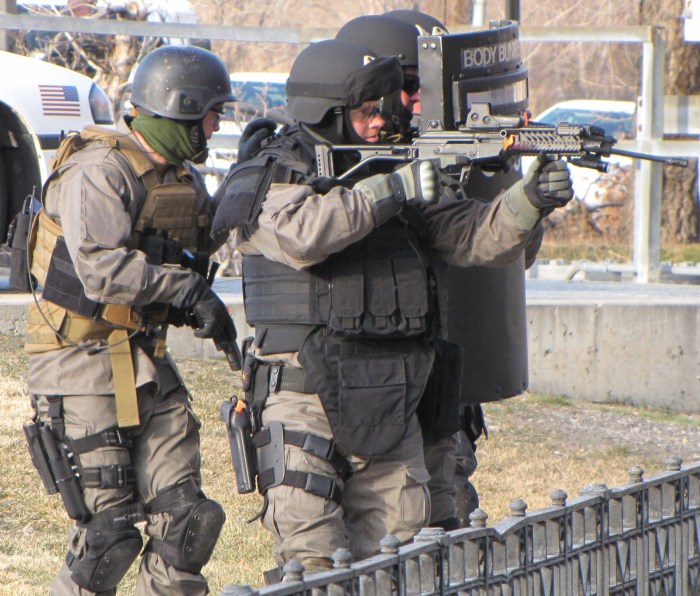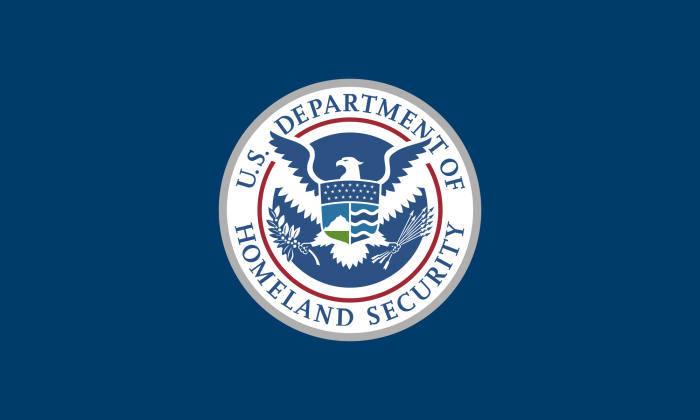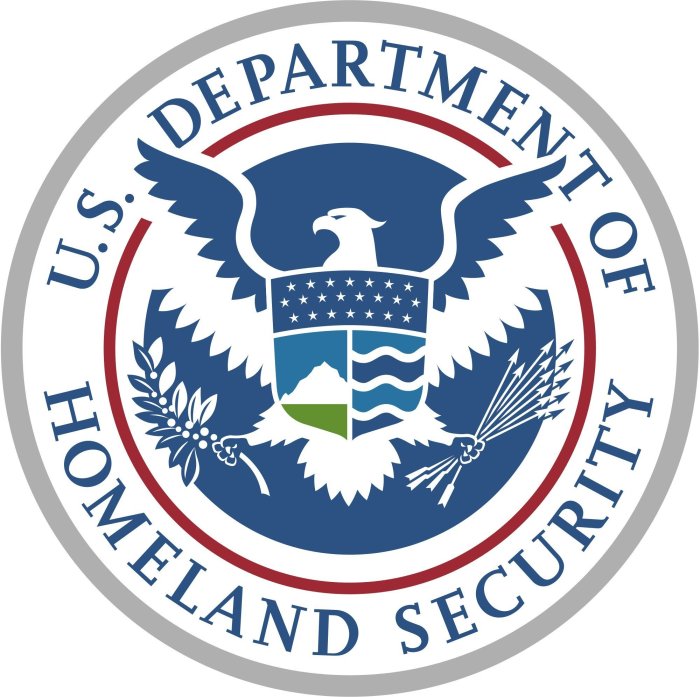Department of homeland security apush – The Department of Homeland Security (DHS) is a critical agency responsible for protecting the United States from terrorism and other threats, securing borders, responding to disasters, enforcing immigration laws, and safeguarding civil liberties.
Established in the aftermath of the 9/11 attacks, DHS has a wide-ranging mission that encompasses various agencies and components, including the Transportation Security Administration (TSA), the Coast Guard, and Customs and Border Protection.
Department of Homeland Security (DHS) Mission and Objectives

The Department of Homeland Security (DHS) is a United States federal executive department responsible for protecting the nation from terrorism, natural disasters, and other threats. Established in the aftermath of the September 11 attacks, DHS consolidates 22 agencies and components under one umbrella to enhance coordination and effectiveness in safeguarding the homeland.
The core mission of DHS is to prevent terrorism and enhance security, while ensuring public safety and economic vitality. Its objectives include:
- Preventing terrorism and protecting against threats to the homeland
- Enforcing immigration laws and securing borders
- Responding to natural disasters and emergencies
- Enhancing cybersecurity and protecting critical infrastructure
- Protecting the privacy and civil liberties of Americans
Historical Context and Creation of DHS
The creation of DHS was a direct response to the perceived security failures leading up to the September 11 attacks. The 9/11 Commission Report highlighted the need for a more coordinated and comprehensive approach to homeland security, leading to the establishment of DHS in 2002.
Agencies and Components of DHS
DHS comprises a wide range of agencies and components, each with specific responsibilities in fulfilling the department’s mission. Key agencies include:
- Customs and Border Protection (CBP)
- Immigration and Customs Enforcement (ICE)
- Transportation Security Administration (TSA)
- Federal Emergency Management Agency (FEMA)
- Cybersecurity and Infrastructure Security Agency (CISA)
DHS Role in National Security

DHS plays a pivotal role in protecting the nation from terrorism and other threats. Its strategies and tactics include:
- Intelligence gathering and analysis
- Surveillance and monitoring
- Counterterrorism operations
- Border security and immigration enforcement
- Cybersecurity and infrastructure protection
Successful DHS Operations and Initiatives
DHS has successfully implemented various initiatives to enhance national security, including:
- Operation Eagle Eye: A surveillance program that uses drones and other technologies to monitor borders and coastal areas
- Secure Communities Program: A partnership with local law enforcement to identify and deport undocumented immigrants
- National Cybersecurity and Communications Integration Center (NCCIC): A hub for coordinating cybersecurity efforts and responding to cyber threats
DHS and Border Security
DHS is responsible for securing the nation’s borders and preventing illegal entry of people and goods. Its challenges include:
- Vast and complex borders
- Smuggling and human trafficking
- Terrorist infiltration
Methods and Technologies for Border Security
DHS employs various methods and technologies to secure borders, including:
- Physical barriers (e.g., walls, fences)
- Electronic surveillance (e.g., sensors, cameras)
- Canine units
- Unmanned aerial vehicles (UAVs)
- Biometric screening
DHS and Disaster Response

DHS plays a critical role in responding to natural disasters and emergencies. It coordinates efforts with other agencies and provides assistance in the following areas:
- Disaster preparedness and planning
- Emergency response and recovery
- Public health and medical support
- Infrastructure protection and restoration
DHS Involvement in Major Disaster Response Operations, Department of homeland security apush
DHS has been actively involved in major disaster response operations, including:
- Hurricane Katrina (2005)
- Superstorm Sandy (2012)
- COVID-19 pandemic (2020)
DHS and Immigration Enforcement
DHS is responsible for enforcing immigration laws and managing immigration. Its policies and actions have been controversial, including:
- Detention and deportation of undocumented immigrants
- Separation of families at the border
- Increased border enforcement and restrictions
Impact of DHS Immigration Enforcement Efforts
DHS immigration enforcement efforts have had significant impacts on undocumented immigrants and communities, including:
- Increased fear and anxiety
- Separation of families and communities
- Economic disruptions
- Strain on local resources
DHS and Civil Liberties
DHS’s operations have raised concerns about civil liberties and privacy. Key issues include:
- Surveillance and data collection
- Detention and interrogation practices
- Use of force and excessive force
Balance between National Security and Civil Liberties
Balancing national security with civil liberties is a complex and ongoing challenge for DHS. The department must:
- Protect the nation from threats
- Respect the rights and freedoms of individuals
- Ensure transparency and accountability
Answers to Common Questions: Department Of Homeland Security Apush
What is the primary mission of DHS?
To protect the United States from terrorism and other threats, secure borders, respond to disasters, enforce immigration laws, and safeguard civil liberties.
What agencies are part of DHS?
Transportation Security Administration (TSA), Coast Guard, Customs and Border Protection, and many others.
What is DHS’s role in border security?
To secure the nation’s borders from illegal entry, drug trafficking, and other threats.
How does DHS respond to disasters?
By coordinating and collaborating with other agencies to provide aid, support, and recovery efforts.
What controversies surround DHS’s immigration enforcement policies?
Concerns about racial profiling, family separation, and the treatment of undocumented immigrants.